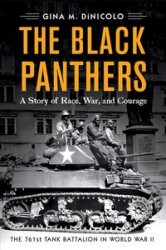A cloud of uncertainty envelops many details of Bacon’s life. He was born in Ilchester, Somerset either in 1214 or 1220, and was probably matriculated first at Oxford. The date of his MA degree would be about 1240, assuming that he was born in 1220 and that a scholar typically earned the MA at the age of 20. During the 1240s, Bacon was lecturing in the faculty of arts at Paris. His lectures covered Aristotle’s Metaphysics, Physics, De sensu et sensato, probably De generatione et corruptione, De animalibus, and the De anima. It thus appears that Bacon was one of the early lecturers, on Aristotle’s libri naturales in Paris. About 1247, Bacon gave up his membership in the arts faculty at Paris and returned to Oxford.
The move to Oxford has been assumed to mark the turning point in his interests. This turn involved a broadening of his outlook in the direction of Robert Grosseteste’s (1168-1252) philosophy and the contents of various Arabic sources.
Bacon joined the Franciscans about 1257, and reports a series of hardships in the first 10 years of his life as a Franciscan. He accuses his superiors of burdening him with duties and punishing him with isolation, hunger, and “unspeakable violence.’’ In those first years as a Franciscan (until 1266), Bacon wrote the De mirabilis potestate artis et naturae, and the De computo naturali. This was the period of his most intense occupation with optics, and in the late 1250s or the early 1260s, he wrote the De multiplicatione specierum and the De speculis comburentibus. Following a short correspondence with Guy de Foulques (c1195-1268), who was elected Pope as Clement IV, Bacon sent him in 1267/1268 the Opus majus, the Opus minus, and the De multiplicatione specierum. The Pope died in the same year, and his successor was not elected until 1271, so Bacon received no answer, and no result had followed from his writings.
In the late 1260s and early 1270s, Bacon probably wrote his Communia naturalium and Communia mathematica, mature expressions of many of his theories. This was also the period of Bacon’s intense occupation with language. The Greek and Hebrew grammars belong to the phase immediately following the Opus majus. These were followed in 1271 or 1272 by the polemical Compendium studii philosophiae, in which Bacon criticized the Franciscan and Dominican orders for their educational practices.
A chronicle, from about 1370, reports that Bacon was condemned and imprisoned by his order for ‘‘certain suspected novelties.’’ The chronicle further tells us that Bacon’s works and doctrines were to be avoided by all, since the order had rejected them. Bacon was supposedly confined to the Paris convent at about 1277, perhaps until 1292, by Jerome of Ascoli (d. 1292), the Franciscan minister general. The reason for this condemnation is unknown. Perhaps it had to do with the repercussions resulting from the Compendium studii philosophiae, which was likely to give offence both to the more conservative members of his own order and to the Dominicans. It could also have been connected to Bacon’s leaning toward the spiritual branch of his order, a branch perceived as a threat by his superiors.
In 1292, at a chapter of the order held in Paris, just after Jerome of Ascoli’s death, certain prisoners condemned in 1277 were set free. It is likely that Bacon may have been one of them. The last evidence of Bacon’s life is the Compendium studii theologiae, which he left unfinished. This was a grammatical work, repeating many of the themes and ideas that had appeared long before in his De signis (a part of the Opus majus). It is reasonable to assume that he died in 1292 or soon thereafter.




 World History
World History









